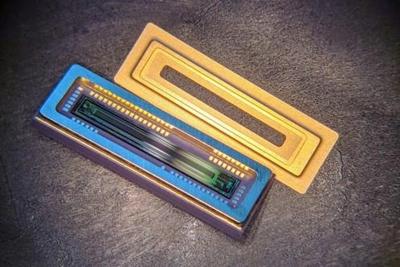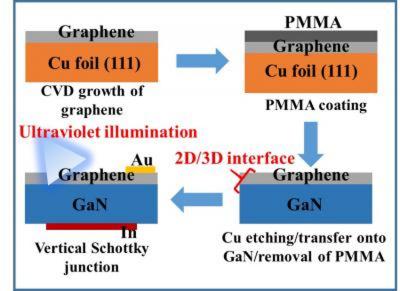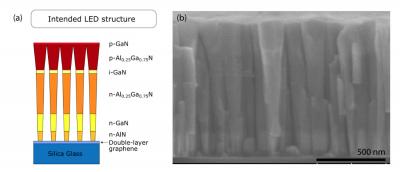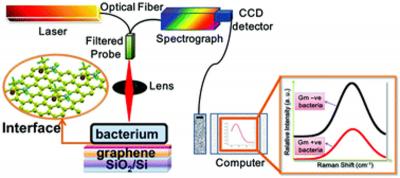
by MBF Admin | Jun 19, 2019 | 2D materials, Aerospace, AGM, Angstron Materials, Audio, Development, Graphene applications, Graphene Flagship, Graphene products, Graphene Sensors, Investment, Products, Research, Technical / Research, Transistors
Graphene Flagship partner, Emberion, will be launching a VIS-SWIR graphene photodetector at Laser World of Photonics, from 24 to 27 June in Munich, Germany. The linear array covers a wide spectral range, detecting wavelengths from the visible at 400nm into the...

by MBF Admin | Jun 19, 2019 | 2D materials, Aerospace, AGM, Angstron Materials, Audio, Development, Electronics, Graphene applications, Graphene composites, Graphene Ink, Investment, Products, Research, Supercapacitors, Technical / Research
Researchers at Joseph Wang’s Laboratory for Nanobioelectronics at UC San Diego demonstrated the synthesis of high-performance stretchable graphene ink using a facile, scalable, and low-cost laser induction method for the synthesis of the graphene component.The...
by MBF Admin | Jun 12, 2019 | 2D materials, Aerospace, AGM, Angstron Materials, Audio, Development, Graphene applications, Graphene Sensors, Investment, Medicine, Products, Research, Technical / Research
Researchers at the International Iberian Nanotechnology Laboratory (INL) and Research Institute for Life and Health Sciences (ICVS) at the University of Minho in Portugal will develop a graphene-based device that allows the early diagnosis of malaria, in a fast and...

by MBF Admin | Jun 9, 2019 | 2D materials, Aerospace, AGM, Angstron Materials, Audio, Development, Electronics, Graphene applications, Investment, Products, Research, Technical / Research
Researchers from the Nagoya Institute of Technology (NITech) in Japan have developed a method to examine the connections between two-dimensional layers of atoms and semiconductors, which could prove useful in the future for ensuring the performance of next-gen...

by MBF Admin | Jun 4, 2019 | 2D materials, Aerospace, AGM, Angstron Materials, Audio, Development, Graphene applications, Investment, lighting, Medicine, Products, Research, Technical / Research
A research team led by professors Helge Weman and Bjørn-Ove Fimland at the Norwegian University of Science and Technology (NTNU) has succeeded in creating ultraviolet light on a graphene surface. This could be beneficial for eliminating the toxic mercury element...

by MBF Admin | Jun 4, 2019 | 2D materials, Aerospace, AGM, Angstron Materials, Audio, CVD, Development, Graphene applications, Graphene Sensors, Investment, Medicine, Products, Research, Technical / Research
Researchers from Myongji University, Sungkyunkwan University, Sungkyunkwan University, Gachon University and Korea Institute of Science and Technology in South Korea, along with U.S-based Villanova University, have developed a new device concept for bacterial sensing...






